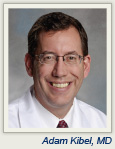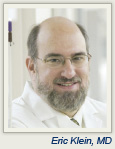 According to Adam Kibel, MD, Urology Chair at Brigham and Women’s Hospital in Boston, it would appear to be logical that increasing the doses of vitamin E and selenium would decrease the risk of prostate cancer, since the preponderance of evidence demonstrates that these supplements do so.
According to Adam Kibel, MD, Urology Chair at Brigham and Women’s Hospital in Boston, it would appear to be logical that increasing the doses of vitamin E and selenium would decrease the risk of prostate cancer, since the preponderance of evidence demonstrates that these supplements do so.
“The SELECT trial has demonstrated that not only isn’t this true, but that it might actually increase the risk. What can the prostate cancer community take home from this? That well designed clinical trials like SELECT are needed before we firmly endorse lifestyle changes, even those as mundane as taking a vitamin,” he commented. Dr. Kibel believes that nutraceuticals should be subject to the same rigorous testing as drugs.
“Does this mean that dietary changes cannot influence risk of disease? Of course they can, but it is harder to predict than we would have expected. Physicians seeking to advise patients on ways to prevent disease should certainly advocate lifestyle changes. I think we can safely say, though, that vitamin E should not be one of those recommendations,” Dr. Kibel stated. ■
Disclosure: Dr. Kibel reported no potential conflicts of interest.

 Supplements touted as preventing prostate cancer may turn out to be dangerous, as is evident from updated results of the largest long-term prevention trial, called the Selenium and Vitamin E Cancer Prevention Trial (SELECT). Final analysis of SELECT showed that, compared to placebo, vitamin E alone ...
Supplements touted as preventing prostate cancer may turn out to be dangerous, as is evident from updated results of the largest long-term prevention trial, called the Selenium and Vitamin E Cancer Prevention Trial (SELECT). Final analysis of SELECT showed that, compared to placebo, vitamin E alone ...